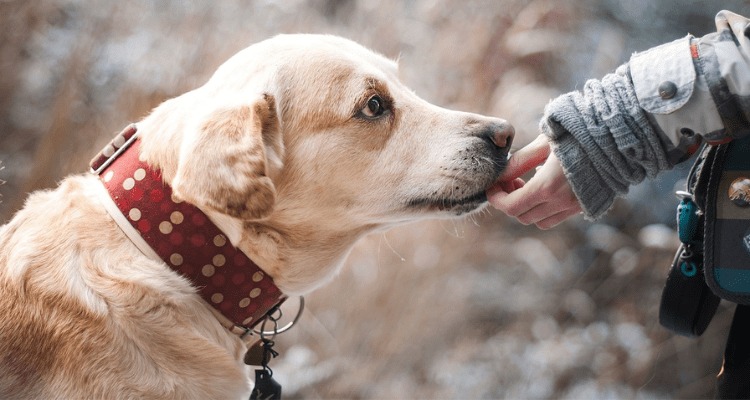Key Takeaways:
- Learn how to choose the best puppy breed for your lifestyle.
- Understand the importance of considering health and temperament.
- Discover how to prepare your home for a new puppy.
- Learn about essential puppy training tips.
Picking another puppy is an astonishing yet once in a while overpowering encounter. Beginning can be mind boggling, with different varieties and characters. The ideal pup will give bliss and be a fitting expansion to your family’s novel timetable.
Prior to bringing a fuzzy companion home, various variables should be thought of, from the variety’s energy levels and size to wellbeing and personality. To set you up for this experience, we have assembled significant counsel to help you in picking the ideal puppy that will immediately turn into a piece of your family. Understanding these elements can make the interaction smoother and more agreeable.
Determining the Right Breed for Your Lifestyle
Matching Energy Levels
Quite possibly the earliest thing to consider while picking a little dog is the energy level that accommodates your way of life. High-energy breeds like Line Collies and Jack Russells require huge activity and mental excitement. These dynamic varieties flourish in homes where they can partake in successive play and exercises. Not practicing enough can bring about conduct issues as they try to deliver unused energy. On the other hand, lower-energy breeds, for example, Bulldogs and Basset Puppies are more easygoing and satisfied with moderate activity. These varieties are great for families who lean toward a quiet way of life or possess restricted energy for broad proactive tasks. Whether you’re investigating various little puppies for sale or considering taking on from a sanctuary, settling on an educated choice that accommodates your family’s way of life and elements is fundamental.
Space Considerations
Another basic component is how much space you have at home. Breeds like Incredible Danes or Holy person Bernards are more qualified for homes with huge yards since they need adequate space to move around. These enormous varieties can feel restricted in little lofts, influencing their satisfaction and prosperity. Then again, more modest varieties, like Dachshunds and French Bulldogs, can flourish in condos or homes with restricted outside space. Their more modest size makes exploring and feeling great in cozier conditions simpler.
Family Dynamics
In the event that you have kids or different pets, picking a variety known for being family-accommodating is vital. Breeds like Brilliant Retrievers and Beagles are normally perfect with kids and different creatures and are known for their delicate and open-minded nature. These varieties frequently structure solid bonds with relatives and are patient and fun loving with youngsters. In the interim, varieties require more socialization to adjust well. For instance, a normally more standoffish variety might require purposeful socialization to become agreeable around kids and different pets since early on.
Allergen Considerations
Families with sensitivity concerns could profit from hypoallergenic breeds like Poodles or Bichon Frises. These varieties are known for their low-shedding coats, which produce less dander and limit unfavorably susceptible responses. Perceiving that no canine variety is completely hypoallergenic is fundamental, yet certain varieties can offer some alleviation for sensitivity victims. Finding a variety that meets your family’s wellbeing prerequisites can fundamentally influence the prosperity of all family individuals.
Evaluating Health and Temperament
Visiting the Breeder
Visiting the reproducer’s office is fundamental to guarantee the little puppies are brought up in a solid and moral climate. Kindly observe the region’s tidiness, the parent canines’ wellbeing, and the way in which the young doggies collaborate with their environmental factors. Pose inquiries about the rearing practices, the young doggies’ genealogy, and wellbeing ensures. Noticing the pups in their home climate can give you experiences into their initial socialization and care quality.
Health Checks
Demand health screenings and declarations for the pup’s folks. Trustworthy raisers will have health accreditations like those from the American Pet hotel Club (AKC). These records check that the raiser has tried for normal hereditary issues and that the parent canines fulfill breed guidelines. Understanding the wellbeing foundation can assist you with expecting potential medical problems and pursue informed choices.
Temperament Testing
Basic personality tests can assist you with figuring out a little dog’s way of behaving. See how the puppy answers new situations and draws in with people and different creatures. Does the puppy appear to be interested and sure or bashful and held? The responses can give pieces of information about the pup’s future way of behaving. Studies recommend that early way of behaving is a dependable mark of grown-up character, so picking a puppy with a personality that lines up with your family is significant.
History Research
Research regular medical issues connected to the particular variety. Sites like PetMD give important data on hereditary problems and other potential wellbeing concerns. Familiarity with these issues empowers you to get ready for and forestall medical conditions, guaranteeing your little dog has a sound existence. This exploration can likewise illuminate your navigation in regards to raise choice, diet, exercise, and routine veterinary consideration.
Preparing Your Home for a New Puppy
Puppy-Proofing
Prior to bringing your new puppy home, guarantee your space is ok for an inquisitive, vivacious little guy. Eliminate any little items, poisonous plants, and ropes reachable — secure cupboards and garbage bins to keep the pup from getting to destructive substances. Consider putting hindrances to confine admittance to specific region of the house. Following these actions can assist with staying away from setbacks and guarantee your little dog’s wellbeing when it enters its new environmental elements.
Essential Supplies
Stock up on fundamental things, for example, an agreeable bed, food and water bowls, bite toys, and a box for preparing. Giving these basics helps the little dog feel comfortable and lessens uneasiness in another climate. Try to pick age-fitting toys and food to take care of the particular requirements of a developing pup. Having these provisions prepared lays out a smooth change when the pup shows up.
Designated Areas
Make an assigned region where your puppy can rest, eat, and play. This lays out a daily schedule and gives a feeling that everything is good. A steady space for these exercises helps house preparing and assists the pup with grasping limits inside the home. Consider utilizing entryways or playpens to make safe zones where the pup can remain unaided.
Early Training and Socialization
Crate Training
Preparing your puppy to utilize a container can be an effective technique for housetraining. It gives a place of refuge and lays out an everyday practice. When presented appropriately, boxes act as a nook like climate where the little dog has a good sense of safety. Bit by bit expanding the pup’s time in the box can assist with acknowledgment and diminish uneasiness.
Basic Commands
Start by training on essential orders, for example, sit, remain, and come. These fundamental orders are basic for your pup’s wellbeing and conduct. Utilizing reliable orders and rehearsing routinely supports these ways of behaving. Instructional courses ought to be short and positive to keep up with the little dog’s advantage and achievement.
Socialization
Acquaint your puppy with various environmental elements, people, and different animals to help confidence and stay away from dread driven activities. Socialization is urgent during the initial not many months when little puppies are more versatile to new encounters. Open your puppy to sights, sounds, and circumstances to support all-encompassing development. A very much mingled pup is less inclined to encounter nervousness or social issues from here on out.
Positive Reinforcement
Use bites and uplifting feedback to advance positive way of behaving. Encouraging feedback helps little puppies advance rapidly and makes a positive preparation experience. This strategy encourages trust and fortifies your security with the little dog. Staying away from discipline based preparing strategies is pivotal in keeping a sound and deferential relationship with your little guy.
The First Vet Visit
What to Expect
The primary vet visit will ordinarily incorporate a thorough wellbeing check. The vet will survey your little dog’s general wellbeing and recognize expected issues. This visit is a potential chance to talk about your puppy’s eating regimen, practice needs, and any conduct concerns you might have. Building a relationship with your vet guarantees progressing support for your pup’s wellbeing and prosperity.
Vaccination Schedule
Guarantee your little dog keeps awake to-date with fundamental inoculations. Your vet will give a timetable to safeguard against normal illnesses. Immunizations are essential in forestalling extreme and possibly deadly sicknesses, so sticking to the suggested plan is important for your puppy’s wellbeing.
Parasite Prevention
Talk about parasite avoidance with your vet. Bugs, ticks, and worms are normal parasites that can influence doggies. Your vet will prescribe medicines and preventive measures to shield your little dog from these irritations. Normal checks and opportune mediations keep your puppy sound and agreeable.
Spaying/Neutering
Ponder the benefits of getting your puppy fixed or fixed. It’s a mindful decision to forestall undesirable litter and can offer medical advantages. Examine the suitable timing and possible benefits with your vet. Fixing/fixing can likewise diminish explicit conduct issues and work on your pet’s general wellbeing.
Long-Term Care and Commitment
Feeding and Nutrition
Pick a fair eating routine custom fitted to your little dog’s necessities. Counsel your vet to guarantee you’re giving ideal nourishment. The right food upholds development, improvement, and in general wellbeing. It is vital to know about both the amount and recurrence of your food admission to keep away from stoutness and related medical problems.
Exercise Requirements
Integrate ordinary activity into your pup’s daily practice. Contingent upon the variety, this could go from short strolls to broad play meetings. Standard activity helps with holding a legitimate weight, staying away from repetitiveness, and improving emotional wellness. Tweak the work-out daily practice to match your pup’s age, breed, and energy level.
Grooming Needs
Keep up with your pup’s jacket with ordinary prepping. Various varieties have fluctuating preparing prerequisites, from basic brushing to proficient prepping meetings. Normal preparing keeps the coat sound, lessens shedding, and permits you to review for parasites or skin issues. Begin prepping meetings right on time to adjust your little guy to routine consideration.
Building a Bond
Invest quality energy with your pup to reinforce your bond. Participate in exercises like recess, preparing, and basically being around them. Building a strong bond improves your relationship and guarantees a balanced and blissful pup. Positive collaborations make trust and unwaveringness, shaping the establishment for enduring friendship.
Embracing a pup is a drawn-out responsibility that requires cautious thought and readiness. By figuring out the necessities of various varieties, assessing wellbeing and personality, and setting up your home, you can give a caring climate to your new fuzzy relative. A doggy’s euphoria and friendship are unequaled, putting forth the attempt and devotion beneficial.
Read More On: Technewzart

